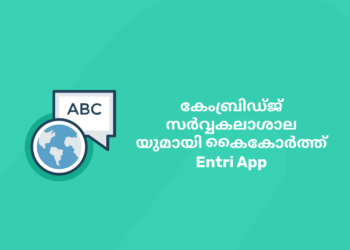Table of Contents
Looking for effective German A1 lesen practice?This article provides practical tips and resources to improve your reading skills at the beginner level. Whether you’re preparing for the Goethe Zertifikat A1 or simply aiming to enhance your German proficiency, engaging in structured reading practice is essential. Our guide offers a comprehensive set of practice exercises designed to help you navigate through everyday situations with ease. You’ll find model exercises tailored for beginners, which not only focus on reading but also integrate listening and writing tasks to build a well-rounded skill set.
By leveraging these resources, learners can effectively prepare for German exams, understand simple texts, and develop the confidence to communicate in German. Dive into the world of German A1 lesen practice and discover strategies that will make your language learning journey both enjoyable and rewarding.
Key Takeaways
- Reading practice is essential for A1 learners to enhance vocabulary, comprehension skills, and writing abilities, while also providing cultural contexts for language acquisition.
- Effective reading exercises are structured to incrementally challenge learners, utilize accessible materials, and include comprehension questions for assessing understanding.
- Integrating reading with other language skills, such as listening and writing, offers a holistic approach to language learning, fostering better overall fluency and confidence.
Master the German Language with Entri App! Click Here for Free Trial Class!
Importance of Reading in German A1 Level
1: Who was the first woman President of India?
Enhancing Vocabulary and Comprehension Skills
Reading practice is crucial for preparing for German exams like the Goethe Zertifikat A1. It enhances vocabulary acquisition and helps beginners recognize and use essential words and phrases more naturally. Seeing words in context through regular reading significantly aids in retaining new vocabulary, speeding up the learning process.
Developing Comprehension and Cultural Understanding
Engaging with written texts develops comprehension skills necessary for understanding spoken language. Regular practice boosts motivation and confidence as learners see their progress. Realizing you can comprehend sentences or paragraphs in a foreign language provides satisfaction and encourages further learning.
Improving Writing Skills Through Reading
Reading familiarizes learners with sentence structures, improving writing skills. It offers implicit grammar lessons, helping learners intuitively understand sentence formation through exposure to well-written texts. A1 learners benefit from texts with simple vocabulary and sentences, making them accessible and effective.
Cultural Immersion Through Reading
Additionally, reading exposes learners to cultural nuances and context, enriching their understanding beyond vocabulary. This cultural immersion is crucial for mastering Deutsch and makes learning more engaging and enjoyable.
Types of German A1 Lesen Practice Exercises
A1 reading exercises often include simple sentences with basic vocabulary, crafted by experienced instructors to prepare beginners. The goal is to help students recognize common words and phrases, building a solid foundation.
Materials are structured to progressively challenge learners, moving from simple sentences to more complex structures. This gradual increase in difficulty helps build confidence and improve reading skills steadily.
Teaching systems often indicate the vocabulary level in reading materials, simplifying the selection of appropriate texts for students.
Master the German Language with Entri App! Click Here for Free Trial Class!
Sample Reading Texts and Questions
- Sample texts for A1 learners are simple, engaging, and relevant, often available as PDFs for self-study and classroom settings.
- Short stories about daily activities or dialogues between friends provide practical language exposure.
- Each passage usually includes comprehension questions to test understanding.
- These questions encourage critical thinking and ensure key points are grasped, ranging from true/false statements to detailed questions requiring written answers.
- Sample texts and questions are useful for individual practice and group activities in a classroom setting.
- They provide a structured way to apply reading skills and receive immediate feedback on comprehension.
Tips for Effective Reading Practice
A structured study schedule can improve reading practice. Here are some tips to create an effective study plan:
- Break the language into manageable sections.
- Set achievable goals.
- Engage in consistent daily practice, even in short intervals, to enhance retention and learning efficiency.
- Incorporate breaks to allow better information processing and increased focus.
By following these strategies, you can optimize your study sessions for better results.Visual aids like sketches and color coding simplify complex concepts and improve comprehension. Highlighting key points reinforces learning and makes later review easier. These strategies help retain new vocabulary and understand sentence structures.
Incorporate speaking and writing exercises related to your reading texts to reinforce language structures and improve fluency. Reading aloud in a stress-free environment boosts confidence and improves pronunciation. Short, timed reading sessions can help maintain focus and avoid burnout when fatigued.
Recommended Resources for A1 Reading Practice
Enhance reading practice by utilizing various resources, including online platforms, beginner books and materials, and mobile apps for on-the-go practice.
Online Platforms for German A1 Reading Practice
The Goethe-Institut offers free exercises and resources for all levels, including A1. Their platform features interactive apps and games to enhance reading and comprehension skills, plus video content to aid in understanding everyday German usage.
Platforms like Duolingo offer specialized reading practice for everyday scenarios in Germany, enhancing practical language skills. They often combine reading exercises with gamified elements to keep A1 learners engaged.Podcasts and interactive quizzes are available to reinforce reading skills.
Books and Materials for Beginners
Materials for A1 learners often come in printable formats for independent study and classroom use. Beginner-friendly books and materials are essential for effectively developing language skills.Graded readers, simple children’s books, and illustrated texts provide an interactive and tangible reading experience, enhancing comprehension and retention. Designed to be accessible and engaging, these materials are ideal for beginners.
Mobile Apps for On-the-Go Reading Practice
Mobile applications offer interactive reading exercises and comprehension questions to enhance learning. Some allow users to download texts as PDFs for offline practice.Apps tailored for A1 practice feature model exercises on everyday situations relevant to the A1 exam. Designed to be user-friendly and accessible, they fit seamlessly into daily routines, offering flexible learning options.
Common Challenges and How to Overcome Them
A common challenge for A1 learners is understanding vocabulary due to their limited range. This can be frustrating when frequently encountering new words. Engaging with diverse reading materials that present different contexts and usage examples helps overcome this.
Printed materials often include exercises to reinforce reading comprehension at the A1 level, solidifying understanding and making learning more interactive. Engaging with diverse reading materials broadens cultural knowledge and fosters empathy by presenting different perspectives.Consistent practice and addressing challenges head-on help learners gradually build vocabulary and comprehension skills, making the journey to mastering German less daunting and more enjoyable.
Benefits of Regular Reading Practice
Regular reading practice significantly enhances comprehension skills. Embracing mistakes fosters a positive attitude towards language acquisition, which is crucial for steady progress and long-term success.
Rewarding yourself after completing reading tasks creates positive associations with study sessions, making the process more enjoyable. Many beginner-friendly books for A1 learners include simple vocabulary and grammar explanations, aiding understanding and retention.
Integrating Reading with Other Language Skills
By integrating reading practice with listening, speaking, and writing, learners gain a comprehensive language experience that enhances overall proficiency. Reading a text followed by listening to its audio version strengthens comprehension and pronunciation, effectively connecting different language aspects, including the listening module. Regular reading also enhances writing skills by exposing learners to diverse styles and structures, while apps like Deutschtrainer A1 offer combined exercises to build a robust vocabulary base. This multi-modal approach ensures well-rounded proficiency in German.
Summary
In summary, reading is essential for learning German at the A1 level, enhancing vocabulary and comprehension while building confidence. With tailored materials available through online platforms, books, and apps, learners have ample opportunities for practice. Integrating reading with other skills enriches the experience, and consistency is vital. Regular practice, along with practical tips and diverse resources, can significantly improve your language journey. Embrace challenges, reward progress, and enjoy the cultural insights of learning a new language. Happy reading!
Master the German Language with Entri App! Click Here for Free Trial Class!
Frequently Asked Questions
Q1. Which is the best online platforms for German A1 reading practice?
Ans: Entri App is an excellent online platforms for A1 level German reading practice, providing a range of exercises and engaging, gamified content. Utilizing these resources will effectively enhance your reading skills in German.
Q2. Can reading practice help with speaking skills?
Ans: Yes, reading practice can indirectly improve speaking skills by expanding vocabulary and familiarizing learners with sentence structures. Reading aloud and discussing texts with others can further enhance pronunciation and speaking confidence.
Q3. What are some effective strategies to improve reading comprehension?
Ans: To improve reading comprehension, focus on understanding the context of the text rather than translating every word. Use visual aids, highlight key points, and summarize passages in your own words. Engaging with a variety of texts also enhances comprehension over time.
Q4. How often should I practice reading in German at the A1 level?
Ans: For optimal progress, it’s recommended to practice reading in German daily, even if only for short periods. Consistent daily practice helps reinforce vocabulary and comprehension skills, making the language more familiar over time.
Q5. How can I integrate reading with other language skills?
Ans: To effectively integrate reading with other language skills, utilizing applications like the Deutschtrainer A1 can be beneficial, as they combine listening, reading, and writing exercises. This comprehensive approach enhances overall language proficiency.
Q6. What are some common challenges in A1 reading practice?
Ans: A common challenge in A1 reading practice is limited vocabulary, which can hinder comprehension. To address this, learners should engage with diverse reading materials and utilize printed exercises for improvement.
Q7. How does regular reading practice benefit me?
Ans: Regular reading practice significantly enhances comprehension skills and builds confidence, while also aiding in vocabulary and grammar retention. Engaging consistently with texts can lead to noticeable improvements in communication abilities.











